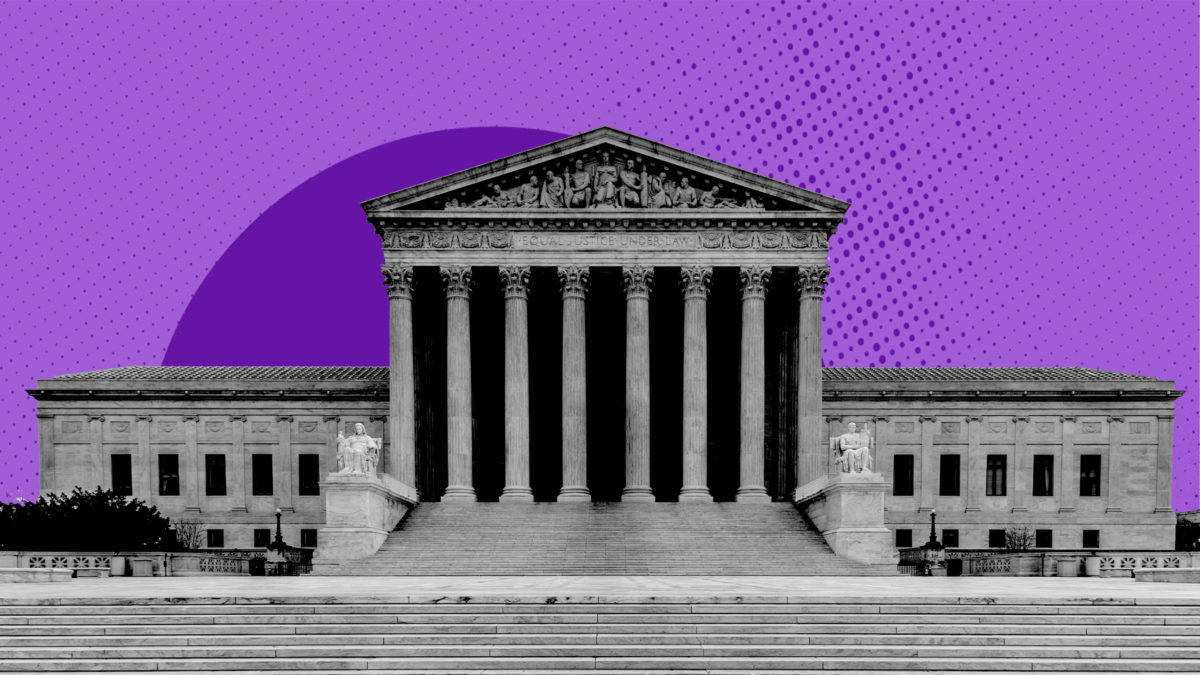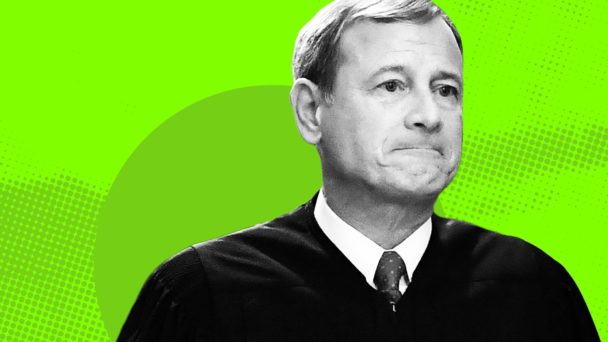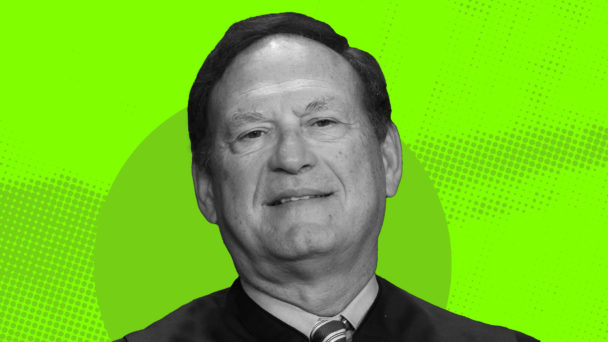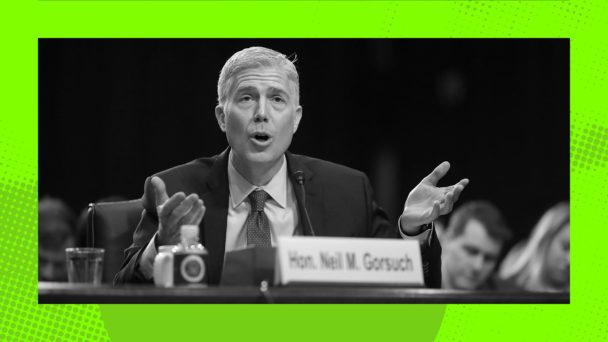One of the few liberal “wins” during last year’s Supreme Court term came when Chief Justice John Roberts decided to take a break from one of his favorite pastimes: stripping away legal protections for voting rights. In Allen v. Milligan, a five-justice majority held that congressional maps in Alabama drawn by the Republican-controlled state legislature likely violated the Voting Rights Act because they were racially gerrymandered. (Yes, the ruling came after the Court allowed the racist maps to stand for an entire election cycle, but still, it was a surprise that the Court didn’t let them stand for another one.)
The relief that many felt, however, may be short-lived, because the Court is back in session and ready to consider a new effort to make it harder for people of color to meaningfully participate in democracy. When the justices hear oral arguments this week in Alexander v. South Carolina State Conference of the NAACP, they will analyze not whether racially gerrymandered maps violate the Voting Rights Act, but whether the maps violate the Equal Protection Clause of the Fourteenth Amendment.
If this were yet another Voting Rights Act challenge, the Court could have leaned on its holding in Milligan to uphold the district court’s ruling, or simply declined to hear the case altogether. But here, the Court has the arduous task of upholding its own precedent and finding that racial gerrymandering, even if done for ostensibly partisan goals, is illegal. Just seven years ago in Cooper v. Harris, a five-justice majority held that “the sorting of voters on the grounds of their race remains suspect even if race is meant to function as a proxy for other (including political) characteristics.” Today’s Court, however, is more conservative, more sympathetic to partisan gerrymandering, and even less concerned about formalities when it comes to voting rights.
Over the past decade, the Court has considerably scrambled the law of gerrymandering, but broadly speaking, there are three ways a gerrymandering case can come down. Gerrymandering based on race is almost always illegal, whether under the Voting Rights Act or the Fourteenth Amendment. But gerrymandering based on political party, the Court decided in 2019’s Rucho v. Common Cause, is too hard for them to police, so they just don’t. Cases like Alexander, where map-drawers say they only considered political party (legal) but also looked at race (illegal), fall somewhere in between. And this gray area leaves the door open to a bleak scenario where the Court, given its makeup, could find that racial gerrymandering is allowed, so long as mere partisan gerrymandering was the map-drawers’ intent. Following the 2020 census, South Carolina’s Republican-controlled legislature began redrawing the state’s legislative boundaries, a process meant to ensure that the populations of each district are proportional. But in January, a unanimous three-judge district court panel upheld a challenge to the state’s first congressional district, which includes the Charleston area, finding that lawmakers gerrymandered it based on race in violation of the Equal Protection Clause of the Fourteenth Amendment.
In Alexander, South Carolina concede that they gerrymandered the district, but protest that it is a partisan gerrymander designed to keep Republicans in control of the district, not a racial gerrymander designed to minimize the voting power of Black people in it. And under Rucho, an opinion authored by Roberts, partisan gerrymandering does not present a justiciable question—in other words, there’s nothing for justices or judges to do about it.
What the NAACP argues here is pretty simple: Republicans set a “racial target” of 17 percent for the district’s Black voting age population, hoping to keep the seat safe for Republicans for the next decade. And to meet that target, they shuffled some 30,000 Black Charleston County residents out of the district, removing every precinct with more than 1,000 Black voters but one. Critically, even as Republicans tinkered with the map’s boundaries, they never wavered from the 17 percent target. This, the lower court found, was “more than a coincidence,” and amounted to a “bleaching” of Charleston County that could not have happened without racial gerrymandering.
Although Alexander is yet another Supreme Court voting rights case, the justices will decide it differently than Milligan, because this case is about whether the map violates the Fourteenth Amendment, not the Voting Rights Act. Even in cases where the Court has held that racial gerrymandering violates the Equal Protection Clause, like Cooper, the justices have at least considered elements of the Voting Rights Act. Alexander presents the justices with a different angle to attack the franchise. A ruling in favor of Republicans in South Carolina would give Republican lawmakers everywhere else the chance to do an end-run around the Voting Rights Act, providing racial gerrymanders with constitutional insulation from legal scrutiny.
Several conservative justices have already hinted that they’re open to such a result. In a partial dissent in Cooper, for example, Justice Samuel Alito opined that judges must “presume the good faith” of legislatures drawing district maps. Roberts joined that opinion, and as did Justice Anthony Kennedy, who has since been replaced by Justice Brett Kavanaugh. Justice Neil Gorsuch was on the Court when it decided Cooper, but recused himself. And although Justice Clarence Thomas joined the majority in Cooper, he wrote a separate concurrence arguing that the Voting Rights Act’s silence as to racial gerrymandering means that the Voting Rights Act is altogether irrelevant to redistricting and claims of racial gerrymandering. Given that the Fourteenth Amendment doesn’t explicitly address redistricting or claims of racial gerrymandering, either, this history doesn’t inspire a ton of confidence.
A decision in Alexander that undermines Cooper after less than a decade would be disastrous for voting rights. For years, the Court has been washing its hands of its responsibility to limit partisan gerrymandering, happily enabling politicians’ cynical attempts to cement themselves in power. By allowing states to recast racial gerrymanders as partisan gerrymanders, the Court would functionally bless them both.




